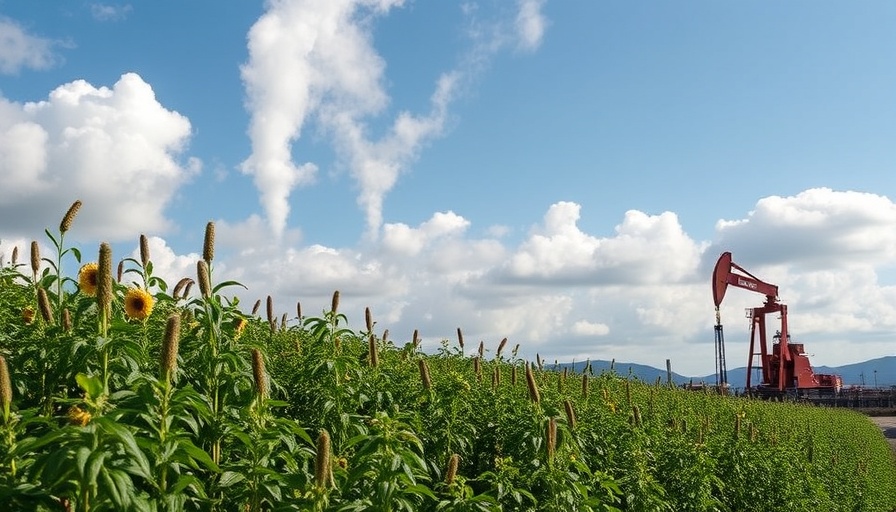
Biofuels Are Not the Clean Energy Solution We Hoped For
A recent study has shed light on the yawning gap between the promise of biofuels and their actual impact on the environment. Despite increasing global demand for biofuels, a new analysis from Transport & Environment (T&E) reveals that biofuels emit 16% more CO2 than the fossil fuels they aim to replace. This revelation challenges the narrative that biofuels could be a valid alternative to fossil fuels in combatting climate change.
Unpacking the Dimensions of Biofuel Production
Today, approximately 3% of the global land is allocated for growing biofuel crops, equating to about 32 million hectares — a land area comparable to Italy. By 2030, this demand is projected to surge by 60%, expanding to 52 million hectares, or the size of France. As a point of reference, more efficient energy-generation options, such as solar panels, could utilize only 3% of that same land to generate equivalent energy, thereby freeing up land for food production and natural restoration.
Resource-Intensive Processes: The Water Factor
Biofuel production is not only land-intensive but also incredibly water-intensive. It takes approximately 3,000 liters of water to drive a car 100 km on biofuels, starkly contrasting with the mere 20 liters needed for an electric car powered by solar electricity. As the world faces increasing pressures from climate change on our freshwater resources, the sustainability of biofuels is coming into serious question.
A Sustainability Dilemma: Food vs. Fuel
The statistics tell a shocking story: around 150 million tonnes of corn and 120 million tonnes of sugar-cane and sugar-beet were consumed for biofuel production in 2023, with the equivalent of 100 million bottles of vegetable oil burned in cars daily. Alarmingly, a fifth of all vegetable oil produced never reaches the food chain. This raises crucial ethical questions regarding food security, suggesting that the energy derived from these food crops could satisfy the minimum calorific needs of 1.3 billion people.
Global Perspectives: Policy Changes Ahead?
Brazil stands as a leading player in the biofuel market, rapidly expanding its production capabilities which could further exacerbate deforestation and impact the Amazon rainforest. Recent decisions to suspend the soy moratorium that protects crucial forest areas suggest a growing emphasis on biofuels, even as experts warn against their continued expansion. As world leaders gather in Brazil for COP30, calls to limit biofuel production must be part of the larger conversation around climate solutions.
Beyond Biofuels: Seeking Sustainable Alternatives
Advocates argue for a transition away from biofuels to more sustainable renewable energy sources that do not compromise land or food supplies. The conversation must shift from crop-based fuels to advanced energy solutions like solar, wind, and true waste-based biofuels that do not divert essential resources away from food production. In making these changes, governments can leverage public funds towards genuinely sustainable practices.
Conclusion and Call to Action
The findings from Transport & Environment serve as a wake-up call to policymakers and consumers alike. As we reconsider our energy sources, it’s essential to understand the broader implications of our choices. Advocating for renewable energy solutions over conventional crop-based biofuels is critical — let’s prioritize developing truly sustainable alternatives while protecting our vital agricultural lands and freshwater resources.
 Add Row
Add Row  Add
Add 




Write A Comment